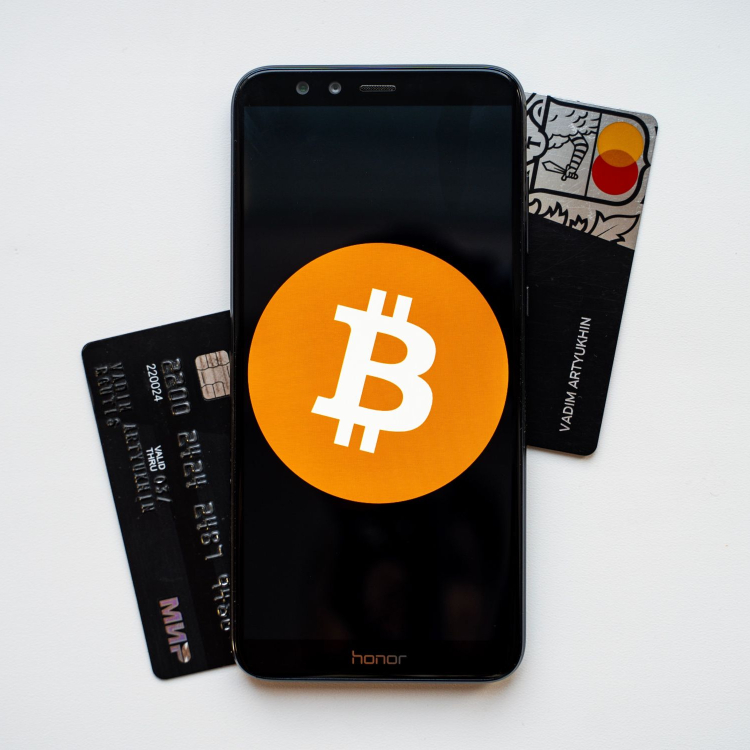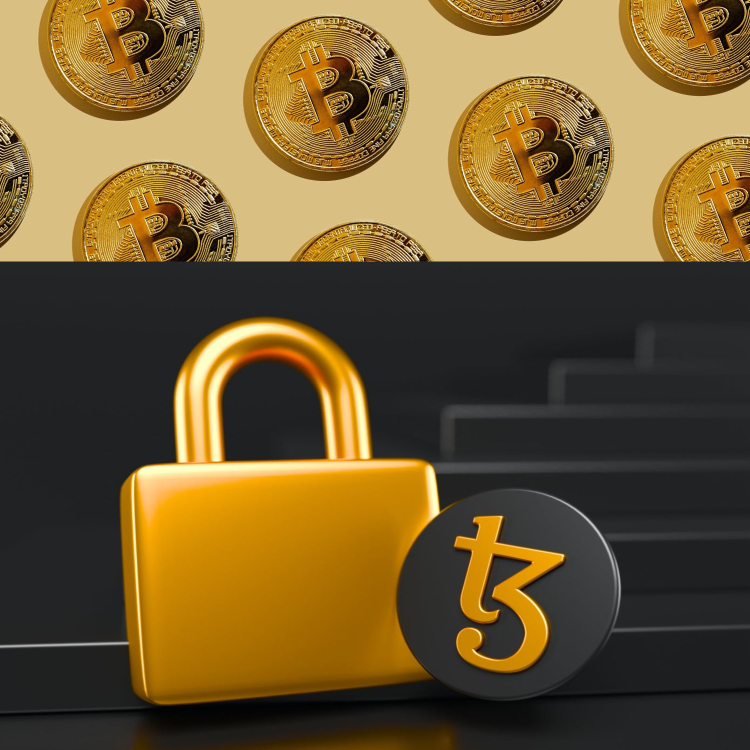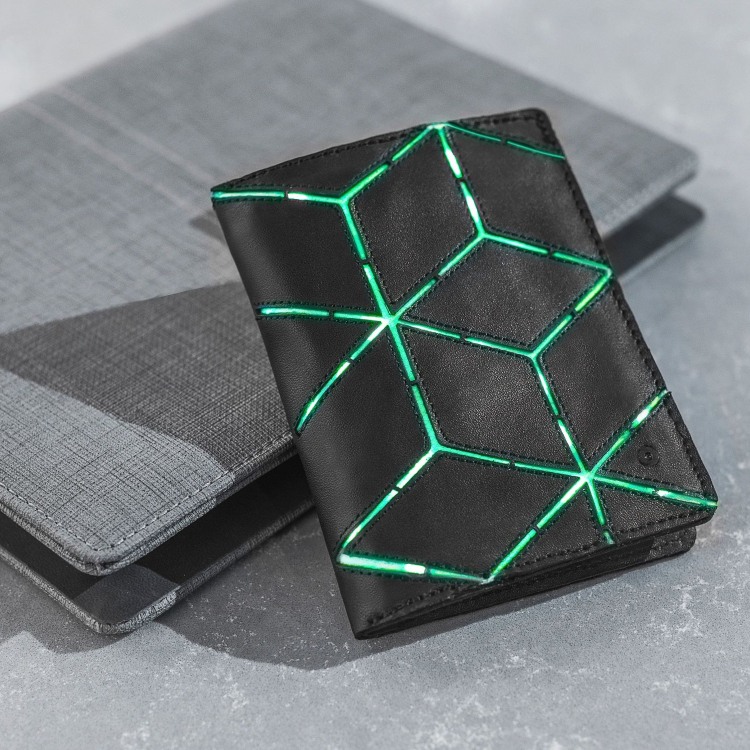At A Glance
- Crypto wallets are used to store your crypto funds.
- Desktop and mobile are the most popular types of wallets.
- Hardware wallets are important for those who plan to hodl.
With the advent of bitcoin and several altcoins, it has become necessary for many who have invested in them to find ways to safely protect these assets.
A safe and reliable way to do so is by using Crypto wallets to store your Cryptocurrency assets.
There are several types of crypto wallets, including desktop, mobile and hardware versions that can hold almost any coin.
This article will explain the different types of wallets available in the crypto space and show you how to use them safely to secure your digital assets.
What Is A Cryptocurrency Wallet?
A crypto wallet is a platform, usually either an application or software, that stores your cryptocurrencies.
The wallet allows you to store, send and receive cryptocurrencies quickly and safely. Some of these wallets have more features than others, including the ability to store cryptocurrencies from various networks alongside more advanced security measures.
It is also important to be aware of “hot wallets” and “cold wallets.” Hot wallets are wallets hosted on an internet-enabled device, making them easier to access but also more susceptible to security risks.
Cold wallets are wallets where assets are stored completely offline, meaning the only way to access them is to physically have control of the device, private keys or master seed phrase.
Generally, hot wallets are used for smaller amounts of funds that move quicker, like for spending, trading, payments or exchanges.
Cold wallets are often used by long-term holders that wish to safely lock away a majority of their portfolio for a much longer time period.
Most of the wallets listed either have cold-storage wallet creation built in as a feature, or can create master seed phrases that can be stored securely offline and later used to recover access.
What are Public and Private Keys?
It’s also worth covering public and private keys and how they relate to Cryptocurrency wallets.
Your public and private keys allow access to your cryptocurrency. For example, when someone sends you cryptocurrency through a wallet, they are authorising the ownership of the coins from their wallet to yours via the keys.
To receive coins, you need to provide your public key. A public key can be compared to an account number, and can be freely shared with everyone.
A bitcoin wallet address is a hashed version of your public key, which is why this wallet address is used to send and receive cryptocurrencies.
This public key does not reveal the identity of the owner, which is why blockchains are considered to be ‘pseudonymous’.
Private keys, as the name suggests, should be kept private at all costs. They act like a PIN code, meaning when used together with your public keys, you gain access to the funds on the blockchain.
Always remember rule one of Crypto — Your private key(s) should never be shared with any other person. These keys are not stored on a blockchain, rather through an (encrypted) file, which can be saved anywhere and stored offline.
They should be secured in the safest way and place possible, ideally on a paper or hardware wallet.
So, how do your keys interact with your wallet?
Simple — think of your wallet as an encrypted key card that contains all the information you need to access your assets. Your wallet combines and contain your wallet addresses alongside your public and private keys.

Bitcoin wallet
How Do I Keep My Wallet Secure?
The level of security varies with each type of wallet. As always, storing your keys online is always a more high-risk option than offline because of the potential for hacking or a exploit on your devices.
Ways to increase the security of your wallet include backing up your wallet, keeping the software updated and adding extra security measures such as 2FA and identity verification.
Regardless of which type of wallet you use, if you lose your private keys, you lose access to your assets. Please check out our Top 10 Security Tips for even more ways to improve the security of your assets.
As the popularity and price of the cryptocurrency market continue to rise, it has maybe never been more important that users understand how to properly secure their assets.
The Different Types Of Wallets Available
Now we’ve covered the basics of what a crypto wallet is and how it works, let’s move on to the different types of wallet available to you.
BeInCrypto has compiled an overview of some of the most prominent wallets available for Bitcoin and other popular cryptocurrencies.
1. Desktop Wallets
Desktop wallets can be split into two groups, ‘Bitcoin only’ and ‘Multi-coin’ wallets. These should generally all be considered hot wallets, though most offer some means of creating offline storage as well.
All wallets covered here are available on Windows, Mac and Linux.
a.) Best Multi Coin Wallet for Desktop
Due to the popularity of altcoins, wallets now provide storage for coins from various networks and functions. The most popular multi-coin wallets provides users with a single interface for managing a diverse portfolio.
i. OWNR Wallet
Based in Estonia, OWNR Wallet was launched in 2018 and is an all-in-one wallet that places an emphasis on utility within a large crypto ecosystem. Among the features that OWNR Wallet has are multiplatform non-custodial wallet apps, prepaid cards, and out-of-the-box enterprise solutions like payment gateway APIs to buy, sell, or trade crypto.
OWNR Wallet can be used on multiple devices, including Android, iOS, Linux, macOS, and Windows. It supports most of the major tokens as well as all ERC-20 tokens. Furthermore, you can also purchase crypto with fiat using Visa, MasterCard, and UnionPay.
The wallet is non-custodial, so only you have access to your funds. It even lets you store your seed phrase in eight different languages. Bitcoin holders will be pleased to know that it supports SegWit, so transactions are faster.
The cards are a nice touch, as the visa prepaid card makes it easy to make more out of your crypto funds. Even businesses can get into this and integrate prepaid cards into their payroll, allowing them to pay their employees in crypto.
ii. Atomic Wallet

Atomic Wallet is one of the more popular multi-coin desktop wallets available for Cryptocurrency holders, offering top-tier security and management of your assets.
It’s available for Windows, Mac, and Linux systems alongside Android and iOS apps. The wallet has a simple, friendly interface and is designed for users of all Crypto knowledge and experience, making it an ideal wallet to store your assets on.
Atomic Wallet provides excellent security protocols alongside an inbuilt swap function named “Atomic Swap”, which allows users to swap their their cryptocurrencies to other coins, all from the wallet.
iii. Exodus Wallet

One of the original cryptocurrency wallets, Exodus Wallet has been around since 2016 and remains one of the most popular multi-coin desktop wallets available on the market.
Is Exodus Wallet Safe For Crypto Storage?
It provides comprehensive security and safety of your assets alongside full support for assets from multiple networks, allowing users to send, receive and store their favourite coins in Exodus Wallet.
Both wallets are solid choices for those fairly new to the cryptocurrency scene as they both offer support for multiple coins and networks, multiple address management and applications that can link with exchanges like Shapeshift.
Both also offer mobile apps that can sync to access your portfolio on the go as well as support with hardware wallets to further increase security.
b. Best Bitcoin Wallets For Crypto Investors
i. Electrum
Electrum is a favourite among many Bitcoin users as it is simple, easy to use and lightweight. it takes minutes to configure and simply verifies your balances and allows you to process, send and receive payments.
The interface isn’t overly technical, but could still be confusing for new users and those unfamiliar with simpler wallets.
Electrum use their own “trusted” nodes to verify transactions, making the process much faster for the more casual user.
This does sacrifice a level of security and control found in “heavier” wallets as it relies on other servers for payment information. However, this doesn’t compromise the users assets in any way.
Electrum allows you to encrypt your wallet file during setup and also provides a “cold storage” mode to create a wallet that can only be watched.
ii. Wasabi
Once configured, it has a clean interface that is simple to use and manage. It’s not as intuitive as other wallets, and has a learning curve. However, once you’re set-up, you’ll find Wasabi wallet to be the most secure wallet on the market for your Bitcoin.
Other options include Armory wallet, another light storage solution with cold storage support and simple management of multiple wallets. The UI may still be a bit daunting for new users, but should be pretty straight forward for anyone familiar with any type of desktop wallet.
Wasabi is an open source Bitcoin wallet, available on Windows, macOS and Linux that focuses on privacy and security.
Wasabi has proven itself to be a popular wallet for those seeking greater privacy of their funds due to Coinjoin.
They also use the TOR network to help hide user IP addresses and transactions. Setting up a Wasabi wallet can be confusing to set-up due to the focus on security, so use the inbuilt wizards and tools to help you get started.
2. Mobile Wallets

Mobile wallets are perfect for managing your portfolio on the go and for the simple sending and receiving of Cryptocurrencies to friends and family.
While virtually every platform listed above has a mobile app to accompany their main product, few mobile wallets that have managed to prove themselves as the best mobile product for holders.
a. Trust Wallet

Trust Wallet is the most popular mobile-only Cryptocurrency wallet available. It allows Cryptocurrency holders to safely secure and manage their assets whilst retaining full control of their private keys at all times.
On Trust Wallet, you can store coins from all major networks, with the added option to backup your assets available for an added layer of security.
An inbuilt Web3 browser allows you to interact with popular DApps through Trust Wallet, and access various exchanges through the app with Trust Wallet/WalletConnect support.
As Trust Wallet supports coins from multiple networks, you can stake your favourite coins with ease.
Other options include Mycelium is a highly popular wallet that has been around for many years. It supports only Bitcoin, but offers the creation of a master seed used to restore the wallet, and hence could be used to create cold storage solutions.
Samourai Wallet is also Bitcoin only, with an emphasis on minimizing fees by integrating Segwit and also has the ability to broadcast transactions offline using SMS.
BRD (formerly Breadwallet) offers support for Bitcoin, Bitcoin Cash, Ethereum and ERC-20 tokens, has a very simple interface, and boasts around-the-clock support.
Both Mycelium and BRD are available on Android and iOS, while Samourai Wallet is Android only.
If you’re set with Bitcoin and looking for a good Ethereum wallet, there are various options available. Check our Ethereum wallet guide to find the best option for you.
b. ZenGo Wallet
ZenGo is a mobile wallet that is available on both iOS and Android. It is completely non-custodial, and keyless on top of that. The design of the wallet is focused on making it simple yet highly secure. You can create a wallet in under 20 seconds with this one.
You can store, buy, trade, and send crypto, with over 70 assets supported, including the major ones. There are three network fee modes (economy, regular, and fast), which are applicable for BTC, ETH, and ERC-20 tokens. You can also cancel your transactions or speed them up before confirmation with a single tap. Lastly, you can earn up to 8% APY on BTC, ETH, and stablecoins.
The wallet only operates in Europe, the U.K., and the U.S. Customer service is also open 24/7. The team plans to implement wallet connect and access to smart contracts in the future.
3. Exchange Wallets
Cryptocurrency holders can also choose to hold their coins on an exchange wallet like Binance, StormGain or Coinbase.

This is an ideal place to hold your coins when you first start on your cryptocurrency journey.
Most exchange wallets are safe. They are also insured—which gives you the added protection in case of a hack or breach.
There’s an expression in Crypto — NYKNYC; it means “not your keys, not your coins.” This is worth remember when keeping your coins on exchanges.
Generally, anyone who isn’t trading as a profession is encouraged to move most or all funds into at least a personally controlled hot wallet, if not true cold storage.
Exodus vs Electrum
Exodus and Electrum are both very popular cryptocurrency wallets, but which is the best one? Well, it depends on what you’re looking for.
The Electrum wallet only supports Bitcoin, which can be a turn off for some users – especially with the altcoin boom we’ve seen recently. It’s a simple interface that relies on personal nodes to verify transactions, which is an interesting decision for a crypto wallet. You can also create a cold wallet within the app, ensuring your assets are entirely offline, only allowing you to view rather than trade or move them.
On the other hand, Exodus is a gorgeous, extremely easy to use wallet with support for tons of cryptocurrencies. It also features a built-in exchange, a mobile app alongside the desktop app, and compatibility with hardware wallets as well.
Electrum is alright for a Bitcoin-only wallet, but those looking to delve more into crypto will want to choose Exodus.
Best Ethereum Wallets
While the list up above is great for traditional cryptocurrency wallets, it’s also important to consider the Best Ethereum wallets on the market. Having ETH is essential if you want to make use of the myriad platforms in DeFi. To get your first ETH, head over here (for U.S. users) or here (for non-U.S. users).
MetaMask
MetaMask is a web wallet that integrates into various web browsers like Brave or Chrome. It allows you to buy Ethereum from within the wallet, as well as hold and trade other ERC-20 cryptocurrencies.
If you’re looking to get into DeFi or interact with Ethereum-based dApps, MetaMask can integrate into them allowing you to participate from your web browser. It’s quite easy to use, with the setup, buy, and send operations streamlined thanks to the simple user interface.
Just note that this is a web wallet, so your cryptocurrencies are more at risk due to the always online connection.
MyEtherWallet
MyEtherWallet is a longstanding wallet for storing Ethereum, Ethereum Classic, and various other ERC-20 cryptocurrencies. It’s incredibly easy to use and entirely open-source, ensuring you can add plug-ins to make the experience even better.
The wallet offers two-factor authentication, a Bitcoin to Ethereum swap built-in, and even connections to hardware wallets. Interestingly, you can even make transactions offline utilizing MyEtherWallet, and even export your private keys to a paper wallet for long-term safekeeping.
Argent Wallet
Argent Wallet is a smart-contract based, mobile-only wallet that only supports Ethereum. Like MetaMask, Argent provides you access to Ethereum dApps ensuring you can interact with the blockchain network as you see fit. All transactions are free within the wallet, and it even offers a set amount of solid recovery tools to bring you private keys back from a potential loss.
Argent also has what they call “Guardians,” or trusted friends and family members that can help recover your keys without a seed phrase and such. This is incredibly useful in case someone steals your phone.
Finally, The wallet can generate “human-readable” public addresses to transact with thanks to its Ethereum Name Service (ENS). This streamlining of transactions will make it much easier for mass Ethereum adoption.
Conclusion
If you’re a cryptocurrency holder looking for a reliable wallet, you’re now spoilt for choice!
Each wallet comes with its own benefits and risks, and many users may find it helps to explore multiple solutions for multiple use-cases.
Also, as times goes on, there will likely be strides made in both ease of use and security, but for now it still falls to the user to take necessary steps to be safe with their own funds.
So whether it’s a desktop, mobile, browser, exchange or hardware wallet, all of your favourite assets are now widely supported.
We know you’ll find the right wallet for your needs using our guide above.
Disclaimer: The information provided on this page does not constitute investment advice, financial advice, trading advice, or any other sort of advice, and it should not be treated as such. This content is the opinion of a third party and this site does not recommend that any specific cryptocurrency should be bought, sold, or held, or that any crypto investment should be made. The Crypto market is high risk, with high-risk and unproven projects. Readers should do their own research and consult a professional financial advisor before making any investment decisions.
Originally published Via this site

